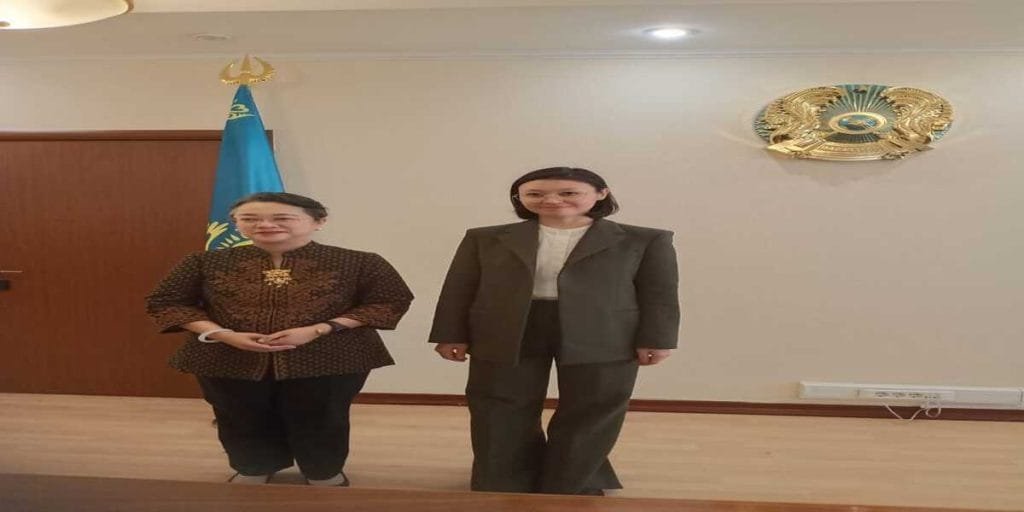Astana, 9 June 2023 (TDI): On the sidelines of the Astana Summit in Kazakhstan, UN Under-Secretary-General Armida Alisjahbana met Kazakhstan Minister of Ecology and Natural Resources, Zulfiya Soleimenova to discuss the revitalization of the Green Bridge Partnership Programme.
The discussion between the two centered on two things, developing the Green Bridge Partnership Programme and increasing cooperation with the International Fund for Saving the Aral Sea (IFAS).
Glad to meet Zulfiya Suleimenova, #Kazakhstan Minister of Ecology and Natural resources. We discussed Green Bridge Partnership Programme revitalization and collaboration with International Fund for Saving the Aral Sea #IFAS. pic.twitter.com/Vuaj8LovkI
— Armida Alisjahbana (@UN_Armida) June 9, 2023
With the elevating climate change-related concerns, the states are putting in more efforts to adopt greener technologies and adapt to climate change along with improving measures for a resilient and cleaner environment.
Also Read: Pakistan Elected as Member of UN Economic and Social Council
In terms of climate action and encouraging green development, Kazakhstan has always played a leading role in Central Asia. The Astana Summit provides the best platform to engage in trans-border dialogue to foster collective effort in this regard.
The Green Bridge Partnership Programme
The Green Bridge Partnership Programme was initiated in 2010 for the Central Asian States to preserve the environment. The idea belonged to Kazakhstan’s First President, Nursultan Nazarbayev.
This program was initiated by the president with a firm determination to strengthen partnerships between Pacific, European, and Asian countries so as to promote the preservation of shared ecosystems, the exchange of experiences, and the transition to a green economy.
It is the only international environment program supported by many countries. In addition, it is included in the Rio+20 report and has been approved by the UN General Assembly.
Its goals are to promote low carbon emissions, climate change, a green economy, eco-friendly use of natural resources and climate adaptation.
Importance of the International Fund for Saving the Aral Sea
IFAS (International Fund for Saving the Aral Sea) was established in 1993 as a result of the collective decision of the heads of Central Asian States. Its objective is to promote and fund environmental projects and programs to address the socio-economic situation in the Aral Sea basin.
The once mighty water body, the Aral Sea, which was counted among the fourth largest water bodies in the world is today no more than the size of a pond. Inefficient and inadequate irrigation methods have caused it.
Consequently, the preservation of the sea and dealing with its catastrophic impacts on the environment and economic situation of the adjacent regions have become extremely significant tasks for these countries.
Green Bridge Partnership Program and IFAS are two of the most important initiatives of the Central Asian States for regional collaboration and unity in combating climate change and preserving the ecosystem.















